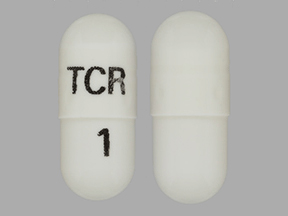
Prograf Coupons & Savings Card – Discount Prices from $42.68
Brand for: Tacrolimus
My prescription
Edit
1MG, Tacrolimus (180 Capsules)
Select pharmacy

CVS
$42.68
COUPON PRICE
Albertsons
$45.10
COUPON PRICE
Walmart
$47.89
COUPON PRICE
Walgreens
$50.76
COUPON PRICEPrograf savings card
Show this card to your pharmacist
CVS
$42.68
BIN
ID
PCN
GRP
019876
LH7723FA31
CHIPPO
LHX
Powered by
Related CNI immunosuppressants prescriptions
More prescriptions for organ transplant
Related CNI immunosuppressants prescriptions
More prescriptions for organ transplant
Price history for Prograf (brand) & Tacrolimus (generic)
180 Capsules, 0.5MG
Average retail price for Prograf
Average retail price for Tacrolimus
Average SaveHealth price for Tacrolimus
Our price history data is based on aggregated prescription data collected from participating pharmacies in America. Our prescription data updates daily to reflect the latest price changes. If you notice a missing data point, it means there wasn't sufficient data available to generate a monetary value for that date.
Over the last 12 months, the average discount price of Prograf is $44.20 using the SaveHealth savings card. That's an average savings of 98.99% on Prograf with our discount card.
*Retail prices are based on pharmacy claims data, and may not be accurate when we don't have enough claims.
Prograf (Tacrolimus) dosage forms
Dosage Quantity Price from Per unit 0.5MG 1 Capsule $2.65 $2.65 0.5MG 100 Capsules $24.32 $0.24 0.5MG 180 Capsules $36.81 $0.20 1MG 180 Capsules $42.68 $0.24 1MG 1 Capsule $2.72 $2.72 1MG 30 Capsules $8.98 $0.30 1MG 60 Capsules $15.46 $0.26 1MG 90 Capsules $21.94 $0.24 1MG 100 Capsules $24.10 $0.24 1MG 120 Capsules $28.42 $0.24
| Dosage | Quantity | Price from | Per unit |
|---|---|---|---|
| 0.5MG | 1 Capsule | $2.65 | $2.65 |
| 0.5MG | 100 Capsules | $24.32 | $0.24 |
| 0.5MG | 180 Capsules | $36.81 | $0.20 |
| 1MG | 180 Capsules | $42.68 | $0.24 |
| 1MG | 1 Capsule | $2.72 | $2.72 |
| 1MG | 30 Capsules | $8.98 | $0.30 |
| 1MG | 60 Capsules | $15.46 | $0.26 |
| 1MG | 90 Capsules | $21.94 | $0.24 |
| 1MG | 100 Capsules | $24.10 | $0.24 |
| 1MG | 120 Capsules | $28.42 | $0.24 |
| 1MG | 6000 Capsules | $572.30 | $0.10 |
| 1MG | 9000 Capsules | $845.30 | $0.09 |
| 5MG | 1 Capsule | $3.76 | $3.76 |
| 5MG | 60 Capsules | $44.87 | $0.75 |
| 5MG | 100 Capsules | $70.58 | $0.71 |
What is the drug PROGRAF used for?
Prograf is used to prevent organ rejection in patients who have undergone a kidney, liver, or heart transplant. It works by suppressing the immune system to help the body accept the new organ.
Is PROGRAF a high risk medication?
Yes, Prograf (tacrolimus) is considered a high-risk medication. It is an immunosuppressant used primarily to prevent organ rejection in transplant patients. Due to its narrow therapeutic index and potential for serious side effects, such as nephrotoxicity and increased risk of infections, it requires careful monitoring of blood levels and patient response.
What foods should you avoid while taking PROGRAF?
While taking Prograf (tacrolimus), it is important to avoid consuming grapefruit and grapefruit juice. Grapefruit can increase the levels of tacrolimus in the blood, potentially leading to increased side effects. Additionally, patients should be cautious with potassium-rich foods and supplements, as Prograf can affect kidney function and potassium levels. It is always advisable to consult with a healthcare provider for personalized dietary recommendations while on this medication.
What is the most common side effect of tacrolimus?
The most common side effect of tacrolimus is nephrotoxicity, which refers to kidney-related issues. It is important for patients taking tacrolimus to have their kidney function monitored regularly by their healthcare provider.
What are the major side effects of PROGRAF?
The major side effects of Prograf (tacrolimus) can include nephrotoxicity, neurotoxicity, hypertension, hyperglycemia, hyperkalemia, and gastrointestinal disturbances. Patients may also experience an increased risk of infections and certain types of cancers due to immunosuppression. It is important for patients to be monitored regularly by their healthcare provider while taking Prograf to manage and mitigate these potential side effects.
